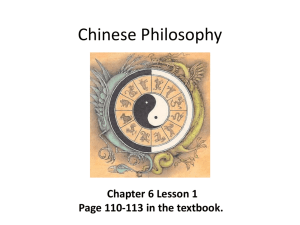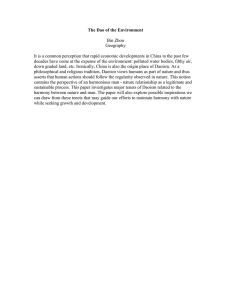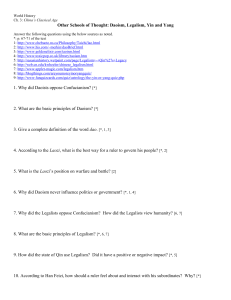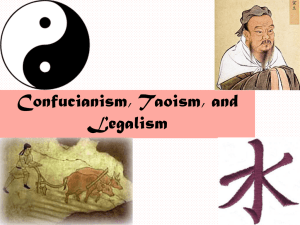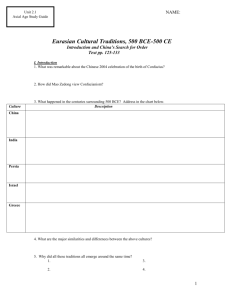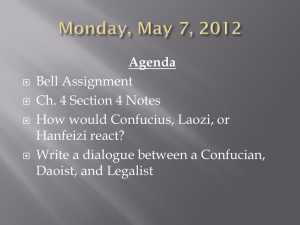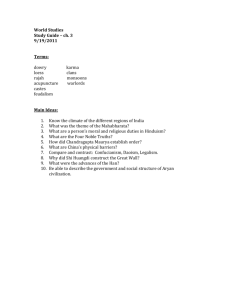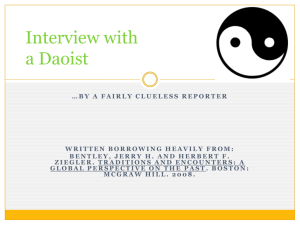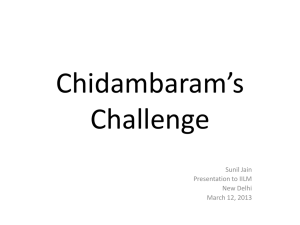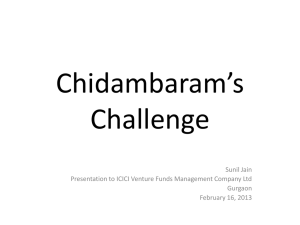China 4.4 pp - Millbury Public Schools
advertisement
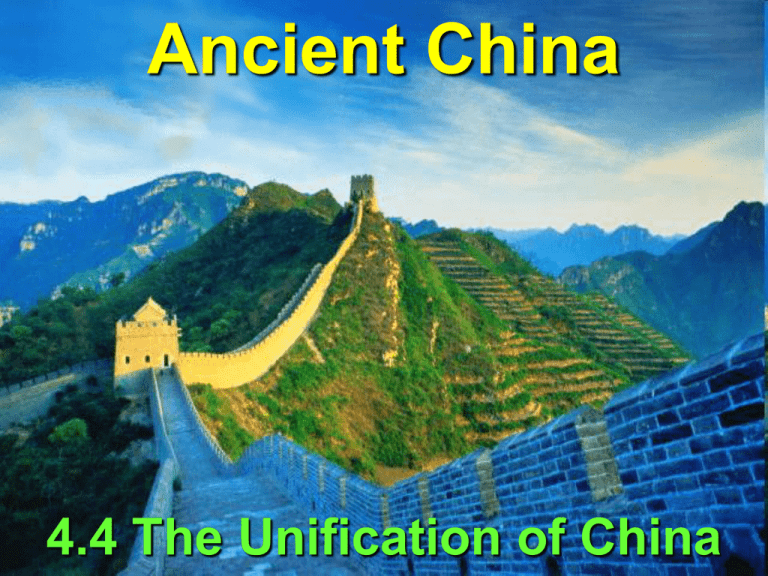
Ancient China 4.4 The Unification of China Chaos of Warring States leads to New Philosophies Scholars try to restore Social order, Harmony, & Respect for authority 3 Philosophical Systems Confucianism Daoism (Taoism) Legalism Yin & Yang Opposite rhythms of the universe Yin: Earth, Feminine, Passive, Tiger Yang: Sky, Masculine, Active, Dragon Confucius (551 – 479 BC) China’s greatest scholar Social harmony & good Govt. depend on the duties of 5 relationships – ruler & subject – father & son – husband & wife – older brother & younger – friend & friend Confucianism Dominant philosophy of China – was supported by some Emperors Values –Social Order through Filial Piety –Education is important to society –Everyone has Civic Responsibility –Govt. jobs (civil service) should be based on Merit Confucian Civil Service Focus of Education = train Civil Servants = govt. workers A trained civil service = Bureaucracy Candidates were required to pass a test on Confucian ethics Anyone could take it, but only rich could afford the education needed. Daoism Founded by Laozi (6th Century BC) The Dao = “The Way” = universal force that guides nature Harmony comes from Nature = study nature to become one with the Dao = achieve internal harmony. Daoist Practices Internal Harmony thru… –Tai Qi –Traditional Chinese Medicine –Astrology Legalism Founded by Li Si Order thru strong govt. that provides rich rewards & harsh punishments. Govt. controls thoughts & actions The Qin Dynasty 221-202 BC Founded by Qin Shi Huangdi United China under an Autocratic Emperor. Used Legalism to crush all political & intellectual threats.
